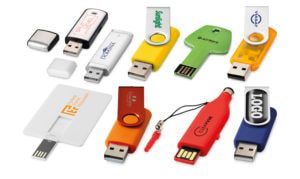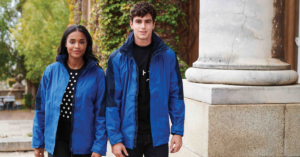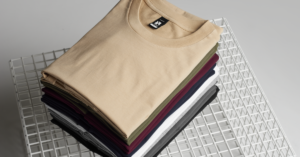With the modern marketplace a truly global animal, staying competitive is difficult for any business, even multinational corporations at the top of the food chain. Fledgling startups looking to gain a foothold in the industry are really up against it, faced with the daunting challenges of a highly aggressive climate, a modest customer base and limited means to go about enlarging it.
With that in mind, it’s unsurprising that many firms choose to go down the digital route rather than pursuing more traditional forms of marketing. Online adverts and social media campaigns can be relatively cheap to stage in comparison to investing significant amounts of capital into corporate giveaways and promotional items drives. But while the former may hold some advantages over the latter, the importance of promotional items for startups should not be underestimated.
What Makes a Good Promotional Product
For example, a recent survey found that recipients of a promotional product were 2.5 times more likely to look favourably on the company behind the giveaway than one which simply showed them a digital advert. Therefore, the money you invest into boosting your brand exposure and getting your name out there through promotional items could come back to you tenfold in the long run (or at least 2.5-fold in the short run), making it well worth your while.

It’s all in the execution
Of course, it’s not just as simple as throwing money at the problem in the shape of freebies and giveaways. As with most things in this world, just as crucial as what you do is exactly how you do it and the execution of your promotional item campaign is all-important. Here are a few areas you’ll want to consider before committing your company (and its cheque book) to the idea.
Targeting your audience. The kind of items which will suit your business depends largely on the niche in which you operate. Are you a tech company? Things like laptop covers, power banks and USB sticks might work best. A fitness firm? Try water bottles or activewear clothing. A food and drinks brand? Travel mugs and tote bags might work best. Of course, there are certain products which are more of a one-size-fits-all proposition, but enhancing the specificity of your giveaways can only be a beneficial thing.
Functionality over flair. The number one factoring in determining whether a promotional item will end up becoming a treasured possession or rattling around in a drawer (or worse still, lining the bottom of a rubbish bin) is its usefulness. Will the product add value to its recipient’s life? This ties in with the above point about the suitability of the item to its intended audience, but opting for goods with high practicality factors is a sure-fire way to a successful startup marketing campaign.
Quality and longevity. For firms operating on a shoestring budget, it can be tempting to cut corners when it comes to splashing out on freebies and other promotional goodies. However, a shoddy or substandard product will do more harm than good, since your company’s reputation will become synonymous with its failings. Similarly, a poorly manufactured product won’t stand the test of time and won’t give you a good return on your investment. Prioritise quality over quantity to maximise its impact.
Start a conversation. The best marketing campaigns – regardless of which form they take – are designed to encourage engagement between the company and its customers. This could be something as simple as printing your company’s email address, website or social media handle on the side of the promotional item, or a more complex scheme involving mailing lists and competitions. However you achieve it, try to provoke a conversation with your intended audience and watch the leads turn into sales organically.
Promotional Advertising
Embracing an advertising campaign which incorporates promotional items for startup businesses along the parameters outlined above is engineered to give your company the best chance of success as it starts out on the long but exciting road ahead. Remember: digital marketing is an integral method of reaching an online audience, but pay-per-click ads and social media drives have a limited shelf life. They can be effective, but only ever really on a short-term basis.
Tangible goods like branded USB pens, travel mugs and tote bags can endure in a client’s home or office environment for far longer, subtly reinforcing the bond between themselves and your company over a period of many years without them even realising it. Therefore, a sensible marketing strategy will combine all kinds of channels, from traditional techniques like promotional item giveaways and snail mail correspondence to online adverts and interactive quizzes. If you do your homework and apply investment evenly and judiciously, the sky’s the limit for you, your brand and its bottom line.




